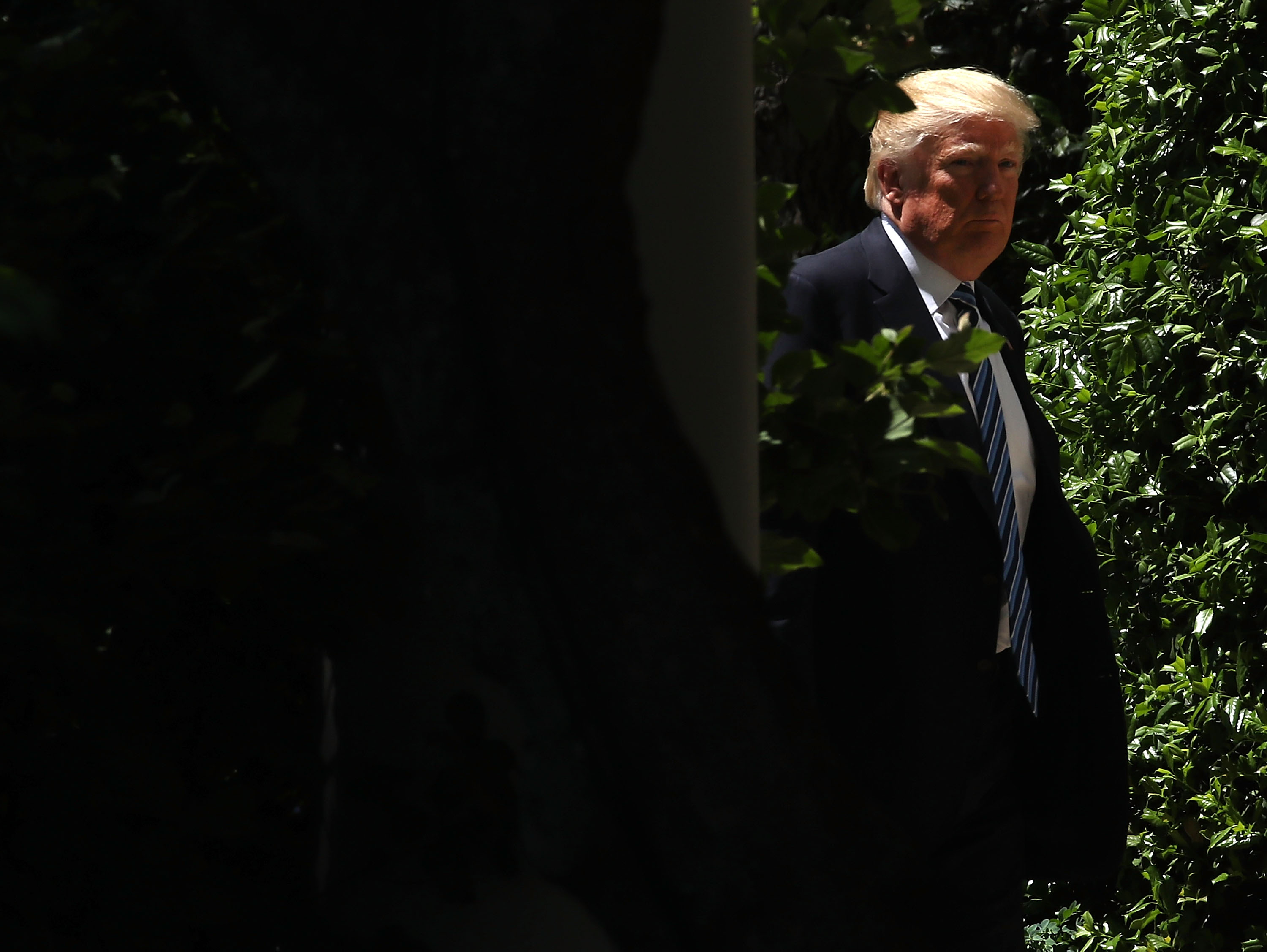President Donald Trump’s bombshell decision to fire FBI Director James Comey on Tuesday sent shockwaves through Washington and the American public.
Almost as soon as the news broke, there were comparisons between Comey’s firing and the events leading up Watergate.
“President Trump’s firing of Director Comey sets a deeply alarming precedent as multiple investigations into possible Trump campaign or administration collusion with Russia remain ongoing, including an FBI investigation,” Sen. Edward Markey of Massachusetts said in a statement.
“This episode is disturbingly reminiscent of the Saturday Night Massacre during the Watergate scandal and the national turmoil that it caused.”
Sen. Richard Blumenthal of Connecticut said in a statement that "not since Watergate have our legal systems been so threatened and our faith in the independence and integrity of those systems so shaken."
But experts say there are some ways in which Comey's firing could be bigger than Watergate, and they hinge on Trump's reasoning in removing Comey.
Glenn Carle, a former CIA clandestine-services officer and national-security expert, said it would be "catastrophic" if Trump had fired Comey because he was angry about the FBI's probe into the Trump campaign's ties to Russia.
"Watergate was huge, but it was based on a criminal charge," he told Business Insider.He said Trump's firing of Comey during the investigation would be "borderline betrayal" and a critical threat to national security if it were based on the Russia probe.
Richard Painter, who was the chief ethics lawyer for President George W. Bush, also expressed suspicion about Comey's firing and said Trump's move was an abuse of presidential power.
"We cannot tolerate this - for the president to be firing people who are investigating him and his campaign and its collusion with the Russians," Painter told Rolling Stone.
"It's a lot worse than Watergate," he said. "Watergate was a third-rate burglary. It was purely domestic in nature. This situation involves Russian espionage, and we've got to find out who is collaborating."
Painter later told CNN, "We didn't have to worry about treason in the Watergate situation."

The president, Attorney General Jeff Sessions, Deputy Attorney General Rod Rosenstein, and several administration officials have said the decision had nothing to do with the Russia probe.
They say Comey was fired because he mishandled the FBI's investigation into Hillary Clinton's use of a private email server while she was secretary of state, and that it had lost him the president's confidence.
But pundits and critics, as well as some members of Trump's circle, have cast doubt on that line of reasoning and said they were troubled by the timing of Comey's firing.
Two advisers told Politico that Trump was furious about the investigation and frustrated he couldn't control the media narrative around it and that he asked why it wouldn't disappear. One adviser said the president would occasionally scream at the TV during news clips about the probe.
Fox News host Charles Krauthammer said it was "implausible" Trump had fired Comey because of the Clinton email investigation.
"If that was so offensive to the Trump administration, what you would have done during the transition is you would have spoken to Comey and said, 'We're going to let you go,'" Krauthammer said.
Based on the timing of Comey's firing, "the obvious inference seems to be that Trump is upset about the investigation," Robert Deitz, a former top lawyer at the CIA and National Security Agency, told Business Insider.
"If it turns out that the Russia thing is bigger than or as big as people have speculated, then this is a threat to democracy," Deitz said. He added that if more evidence of Trump associates' ties to Russia emerged, Comey's firing would "certainly be bigger than Watergate."
But if Trump's fury about the Russia probe were a motivation for terminating Comey, he likely would be disappointed.

Regardless of whether Comey is leading the FBI, it will continue its investigations, one FBI official told The New York Times on Wednesday.
And Comey's firing could further energize the investigation, as Archibald Cox's did during the Watergate scandal.
"There are so many people now working on this issue, and this firing is going to do nothing but encourage that," Deitz said. He added that Comey's firing would "barely be a blip on the radar" of career professionals investigating the president's associates.
Comey's dismissal could also accelerate the steady drip of sensitive information being leaked to the press, Deitz said - and there already seems to be evidence of that.
Shortly after news broke that Comey had been fired, CNN reported that a grand jury had issued subpoenas to associates of Michael Flynn, the former national security adviser, who is involved in the Trump-Russia probe. On Wednesday, The New York Times reported that days before he was fired, Comey asked the Department of Justice, led by Sessions and Rosenstein, for more resources for the investigation.
"People are going to be absolutely all over this Russia thing, just because they think nobody would do this unless there's something really bad underneath it all," Deitz said.

